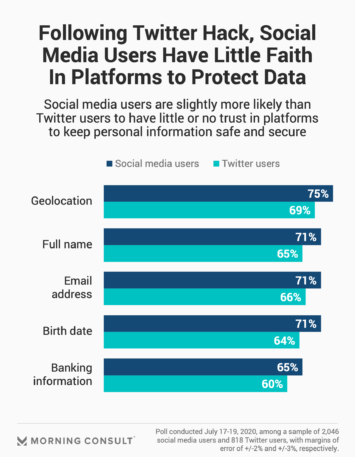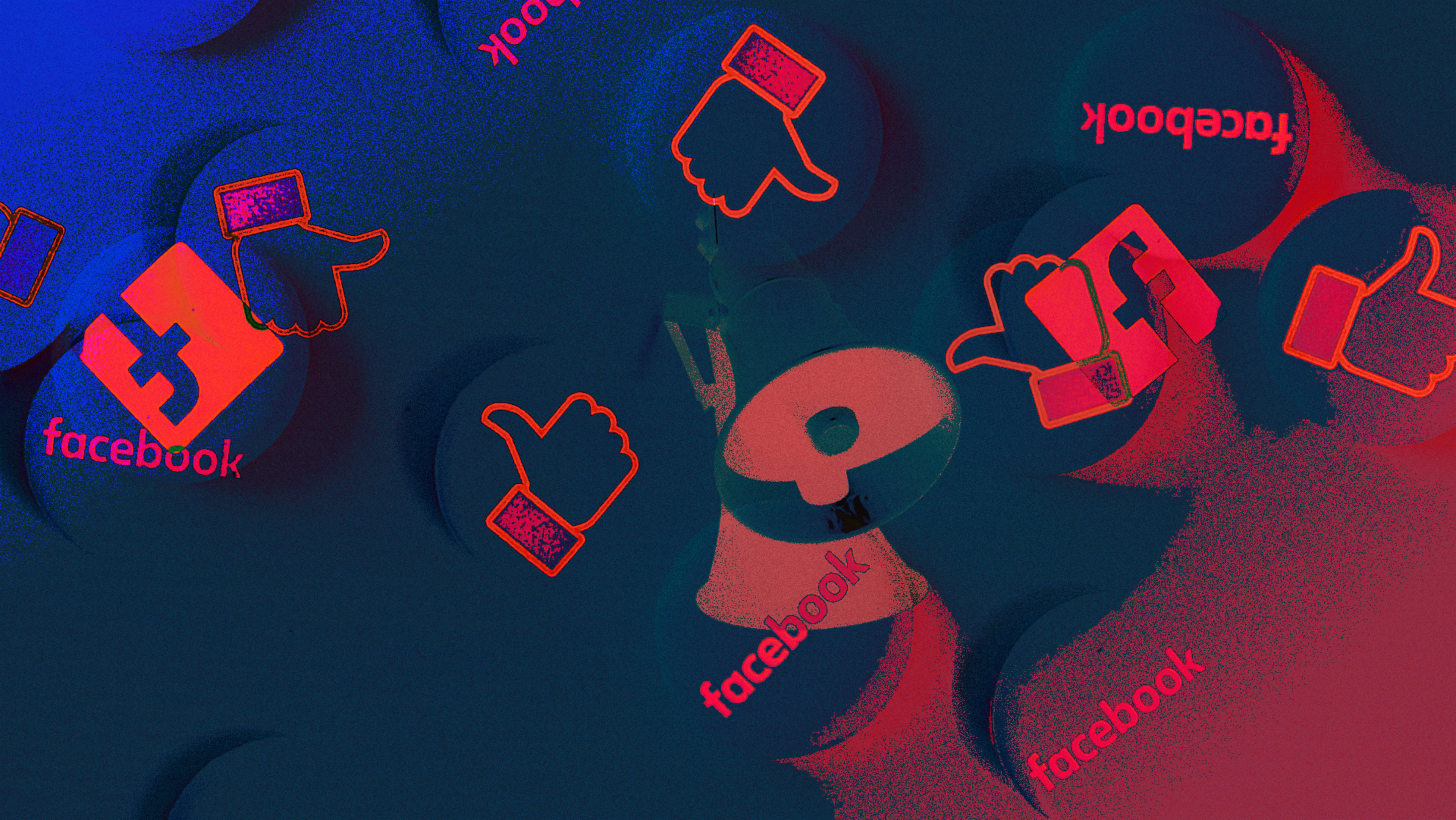Most Americans believe that foreign propagandists will once again hijack major social networks to meddle in the November election, a new survey finds.
Morning Consult’s survey of 2,046 self-identified social network users found that 56% believe big networks such as Facebook and Twitter can’t be trusted to control the problem of organized disinformation campaigns on their platforms. The survey was taken over the weekend following the July 15 hijacking of the Twitter accounts of Joe Biden, Elon Musk, Kayne West, Barack Obama, Bill Gates, and many public figures, ostensibly to run a bitcoin scam.
Twitter says the hackers targeted 130 accounts and successfully breached 45 of them. The hackers reset the passwords for those accounts and then were able to begin posting from them. They could also view the personal information of the account holders.
With the November election approaching, the Twitter breach caused some in political circles to immediately wonder if the DMs of candidates or campaign personnel might also be vulnerable to hacks.
Twitter reports that the hackers were able to download the direct messages and account information of up to eight unverified accounts and that no verified accounts had data downloaded.
However, the hackers may have viewed the DMs and other personal information of high profile people such as Biden. It’s easy to envision how the right hacked DMs could have an impact on the election in November—just as Clinton campaign chair John Podesta’s leaked emails were leveraged by the Trump campaign in 2016.
Morning Consult asked its survey takers if they feel secure that their own social media DMs couldn’t be hacked and stolen. While 44% said they feel at least somewhat secure, 47% said they feel “not very secure” or “not secure at all.”
Survey takers, half of which were aware of the Twitter hack, feel little confidence that social networks can protect their personal information. More than 70% said they have “little or no trust” in social media sites to protect their full name, email address, birth date, and geolocation. Morning Consult’s poll has a margin of error of plus or minus 2 percentage points.

Twitter said in a weekend blog post that the attackers fooled a small group of Twitter employees into giving up the login credentials they use to access internal systems.
Meanwhile, presumptive Democratic nominee Joe Biden released a statement Monday on election interference that included some harsh language for foreign bad actors. Biden said he “will treat foreign interference in our election as an adversarial act that significantly affects the relationship between the United States and the interfering nation’s government.” Biden adds that he plans to “direct the U.S. Intelligence Community to report publicly and in a timely manner on any efforts by foreign governments that have interfered, or attempted to interfere, with U.S. elections.”
Recognize your brand’s excellence by applying to this year’s Brands That Matter Awards before the final deadline, June 7.
Sign up for Brands That Matter notifications here.
